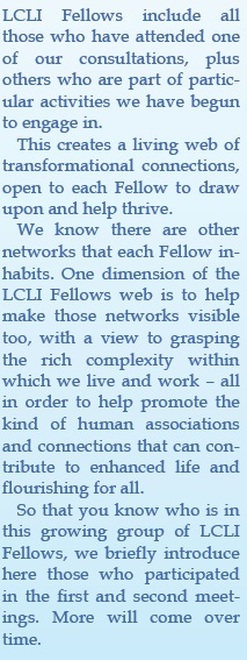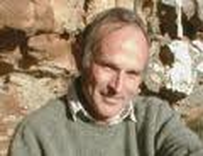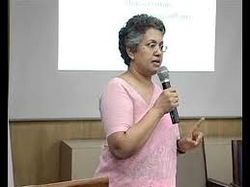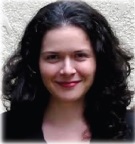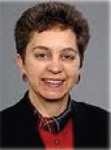LCL FELLOWS 2013
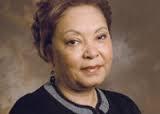
With an MD and MBA, Joyce is a retired Captain, US Public Health Service, Centers for Disease Control and Prevention; retired Director, Center for Public Health Practice, Rollins School of Public Health, Emory University. A Board Certified Pathologist in Anatomic and Clinical Pathology, her current focus on interdisciplinary and inter-sectoral translation research leverages the evidence base to make progress toward system scale change for health and equity. She provides leadership coaching for cross-sectoral teams nationally for the Public Health Institute’s National Leadership Academy for the Public’s Health. She served on the 2014 ProjectAdvisory Committee of the Institute for Alternative Futures publication, Public Health Scenario 2030: A Scenario Exploration; and the Institute of Medicine Committees on the Assessment of Resiliency and Prevention Programs for Mental and Behavioral Health in Service Members and Their Families (2013-2014); and the Committee on Public Health Strategies (2009-2012). She serves on the boards of the Blue Cross Blue Shield Healthcare Plan of Georgia, Inc. and AMGP Georgia Managed Care Company, Inc.
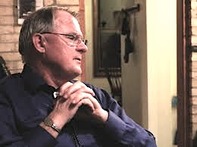
Larry Pray. Larry is co-author with Gary Gunderson of The Leading Causes of Life, the book that launched the ideas that lie at the core of this Initiative. More recently he authored a book richly mixed with his own reflections and paintings on Thresholds: Connecting Body and Soul after Brain Injury (Ruder Finn Press). Before that he published Journey of a Diabetic with Simon and Schuster. His interests lie in creativity and healing, chronic disease, and … finding life in unlikely places! Larry, par excellence a pastor, writer, poet and painter, graduated from Union Theological Seminary (MDiv), having received an MA at Johns Hopkins University, and a BA at Beloit College. Larry’s deeply insightful and powerfully evocative poems and paintings following a series of strokes, and created for as many Fellows as he was able, are a central, vital element of our self-understanding.
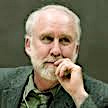
Douglas McGaughey. Emeritus Professor in Religious Studies, Willamette University, OR. He completed his doctorate under Paul Ricoeur at the Divinity School of the University of Chicago. He is the author of a trilogy of books in Philosophical, Systematic, and Practical Theology as well as the editor of a Festschrift in honor of Herman Waetjen at the San Francisco Theological Seminary in San Anselmo, CA. His translation of Otfried Höffe’s Can Virtue Make Us Happy? The Art of Living and Morality was published by Northwestern University Press in 2010. A Fulbright Senior Fellow during 1992-1993 in Tübingen, in 2006 he was among the prize winners of an essay contest sponsored by Das Forschungsinstitut für Philosophie Hannover, Germany on the question ‘Braucht Werterziehung Religion?’, published by the Wallstein Verlag in Göttingen in 2007. In 2010, he participated in a conference under Otfried Höffe on Kant’s Religion Within the Limits of Mere Reason, his paper subsequently being published in Immanuel Kant: Religion innerhalb der Grenzen der bloßen Vernunft (Berlin: Akadamie Verlag, 2010). He is a Corresponding Member of the Research Center for Political Philosophy (Korrespondierendes Mitglied der Forschungsstelle Politische Philosophie) at the Eberhard-Karls University in Tübingen. He is host of the website http://www.criticalidealism.org.
|
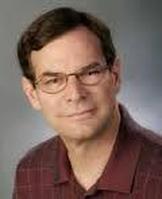
Kenneth I Pargament. Professor, Department of Psychology, Bowling Green State University, and Adjunct Professor, Menninger Department of Psychiatry and Behavioral Sciences, Baylor College of Medicine. Ken specializes in community psychology and the psychology of religion and spirituality. Mentoring over 35 Ph. D. graduate students, he has been a consultant with NIH, WHO, Templeton Foundation, and Fetzer Institute. Editor-in-chief of the APA Handbook of Psychology, Religion, and Spirituality, among his many publications is the recent Spiritually Integrated Psychotherapy: Understanding and Addressing the Sacred. Ken went into psychology because he was ‘interested in the big questions: Why are we here? How should we live our lives? How can we make the world a better place?’
|
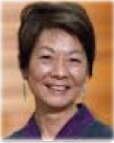
Euginia Eng. Professor of Health Behaviour, Gillings School of Global Public Health, University of North Carolina at Chapel Hill, Geni focuses on the relevance and measurement of the concept of community competence as an outcome of community-based interventions. She has done extensive fieldwork in rural villages of Togo, Indonesia, and African American communities in the Mississippi Delta and North Carolina. She also works on the lay health advisor (LHA) intervention model, based on the concept of natural helping across social networks in ethnic minority populations, and on applying the Action-Oriented Community Diagnosis. Previously Director of the Kellogg Health Scholars Program in community-based participatory research (CBPR), Geni also enjoys piano, jazz and all things West African.
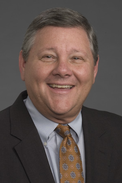
Scoggin, Steve. Steve is Assistant Professor in Psychiatry and Behavioral Medicine, ordained. President of Carenet (linked to Wake Forest Baptist Medical Center), a state-wide network of 35 plus outpatient behavioral health clinics—as leaders in spiritually integrated psychotherapy, counseling, education and research, the largest network of its kind in the world—Steve is deeply involved at state, local and non-profit levels in advocacy, education, and service provision for children, adults and families who live with physical, emotional, and neurological disabilities. Living at the intersection of mind, body, spirit and community, he seeks to root new models of spiritually integrated behavioral health into medical and non-profit contexts, for the sake of all.

Douglas Easterling. Professor in the Department of Social Sciences and Health Policy at Wake Forest School of Medicine, Doug served as department chair from 2005-2015. Prior to coming to Wake Forest, he was a division director within the Center for Youth, Family and Community Partnerships at the University of North Carolina at Greensboro. At both Wake Forest and UNCG, Doug has worked as an evaluator, strategic advisor and facilitator for national, state, and local foundations, as well as a variety of non-profit organizations and government agencies. He also served as the Director of Research and Evaluation at The Colorado Trust, a health foundation in Denver. Doug has written and presented extensively on the topics of program evaluation, strategic philanthropy, social capital, community capacity, collaboration, civic leadership and systems change. He holds a Ph.D. in Public Policy and Management from the Wharton School, an M.A. in Quantitative Psychology from the University of North Carolina, and a B.A. from Carleton College. Doug loves writing, dog training, exploring indigenous spirituality and healing, and travel—to mountains and desert! Above all, he seeks to be part of processes, experiences and communities where people grow, evolve and step into their power.
